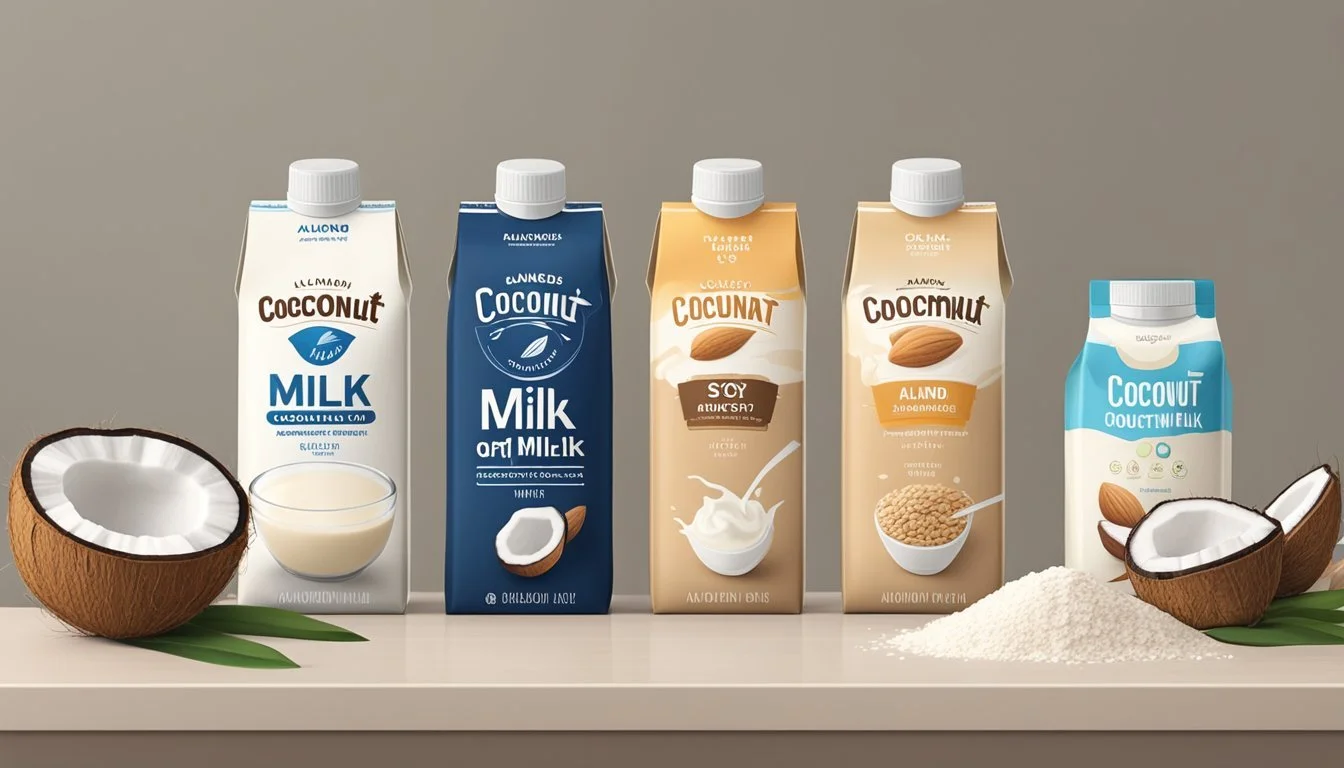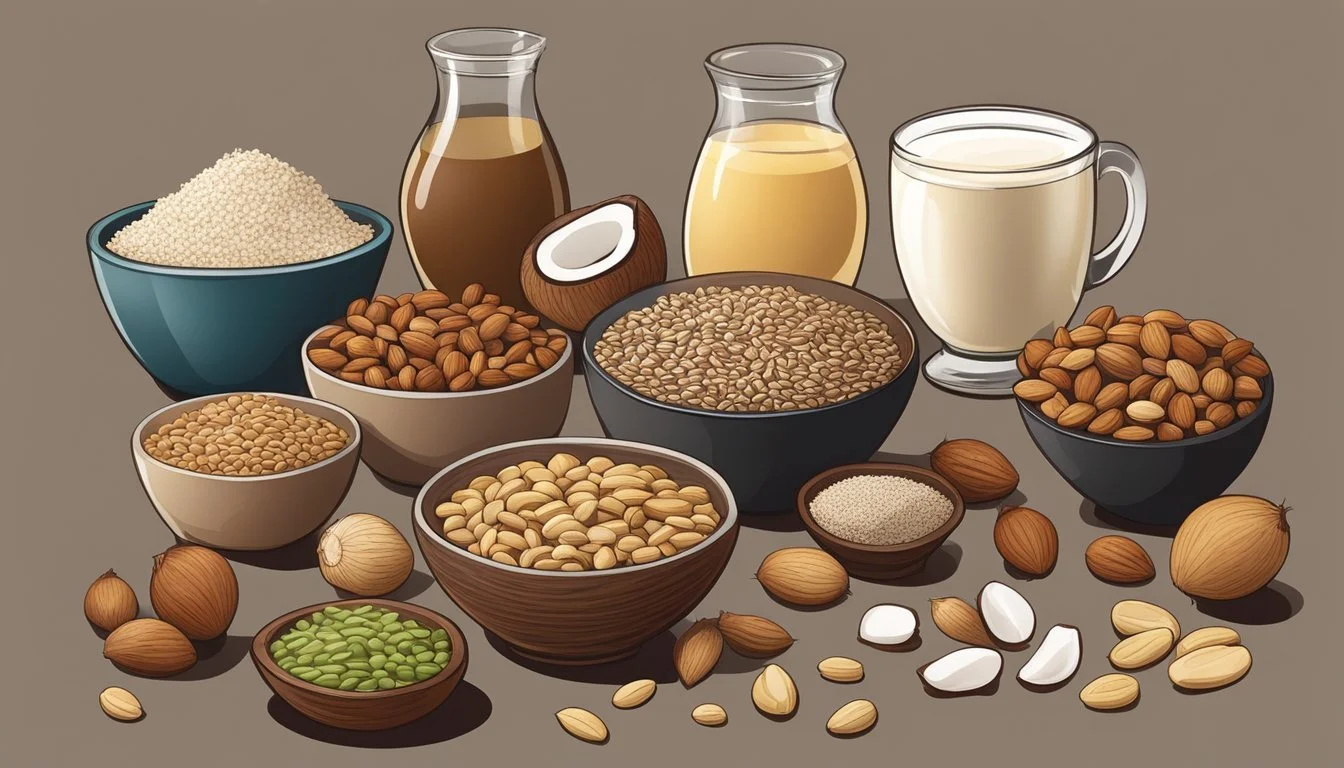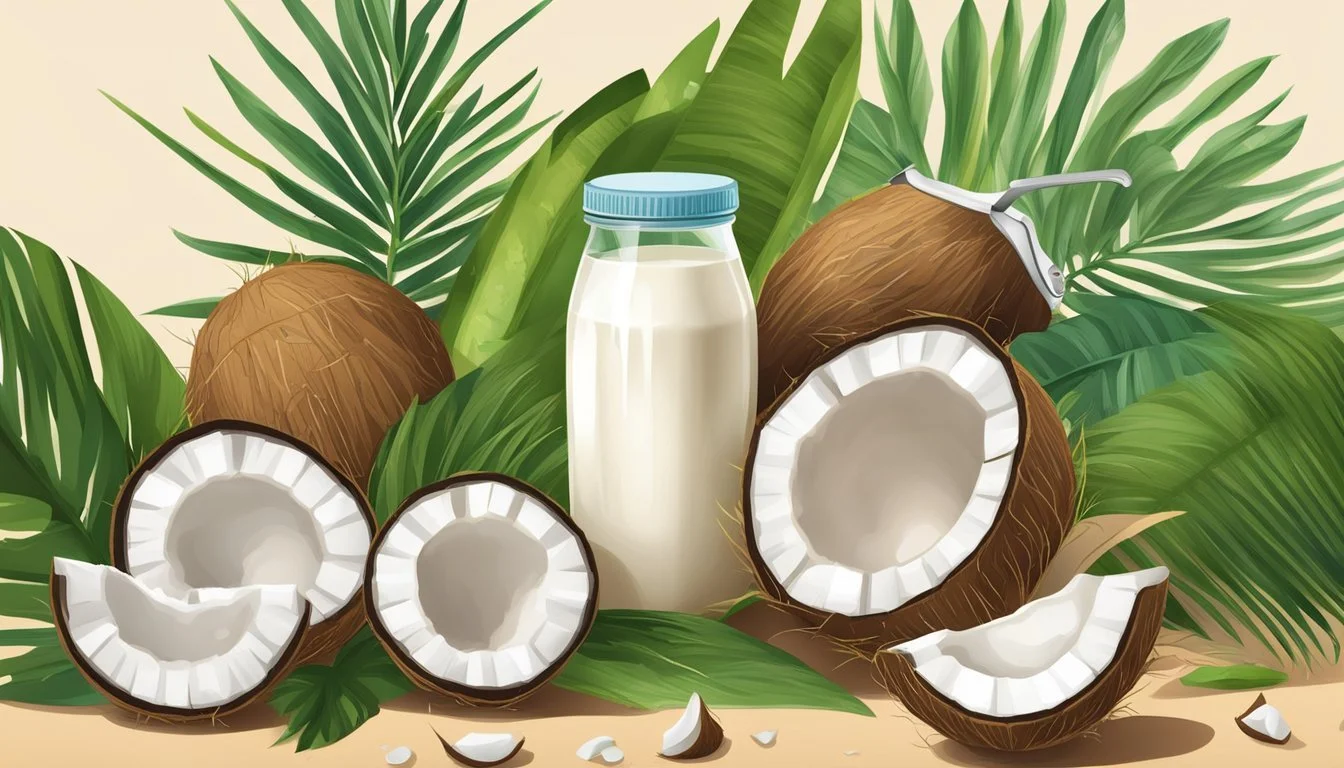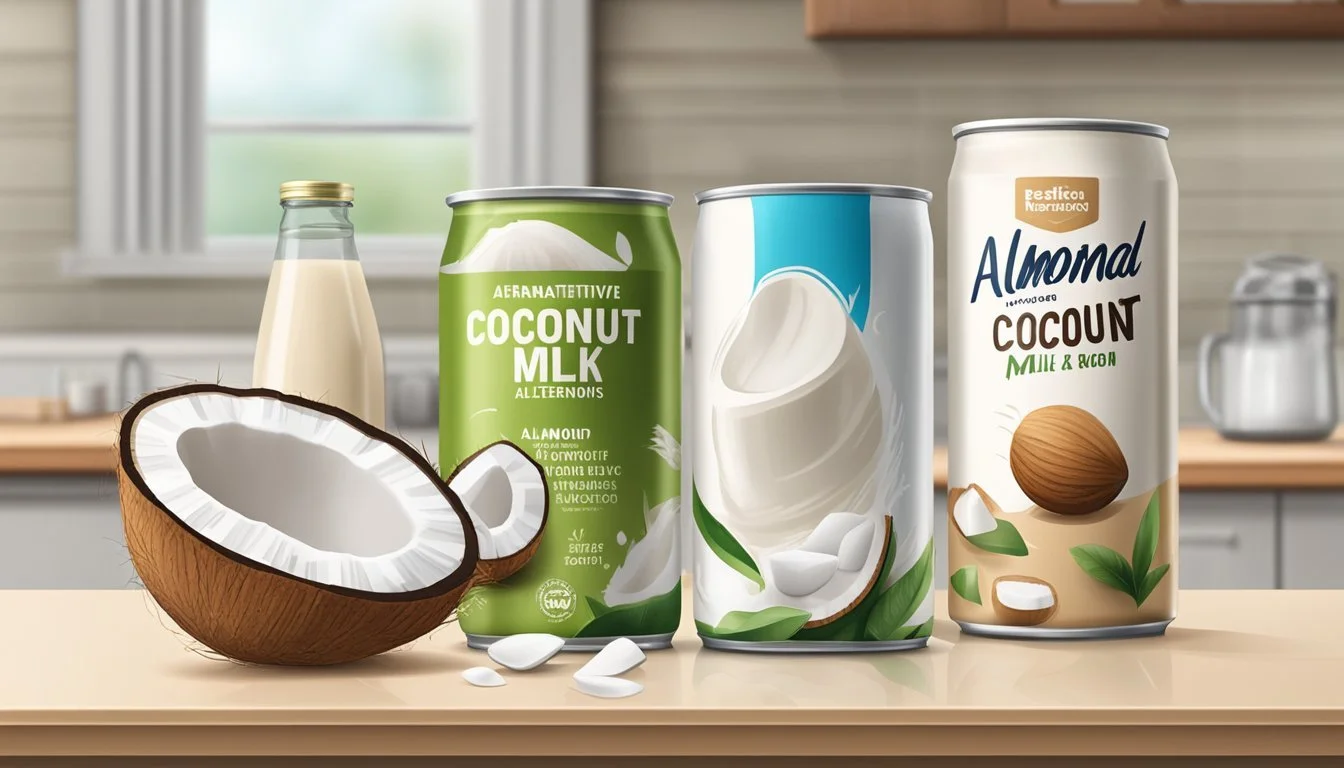Coconut Milk Substitutes
Top Alternatives for Dairy-Free Cooking
Coconut milk is a staple in various cuisines around the world, particularly in Southeast Asia, where its creamy texture and rich flavor form the backbone of numerous dishes. Yet, due to dietary restrictions, allergies, or simple pantry shortages, people often seek alternatives to this key ingredient. Identifying a suitable coconut milk substitute requires understanding the role it plays in a recipe, whether it contributes to the dish's creaminess, helps to balance flavors, or adds a distinct coconut taste.
A range of substitutes is available, each offering its unique properties to mimic coconut milk's creamy consistency and flavor profile. Nut milks, such as cashew milk, can be used in equal parts to replace coconut milk, especially in sauces and soups. Cashew milk's high fat content echoes the richness coconut milk would provide. Additionally, oat milk is frequently chosen for its creaminess when making lattes, though it lacks the typical coconut flavor.
For those not averse to dairy, heavy cream diluted with water serves as an effective coconut milk alternative in many recipes. It reproduces the desired thick and creamy texture, which is particularly important in dessert and savory dishes. Peanut butter blended with water also offers a surprisingly efficient replacement that provides both the creaminess and a complementary nutty flavor in recipes such as stir-fries and peanut sauces. Each substitute requires consideration of the end dish's texture and flavor to ensure a successful culinary outcome.
Understanding Coconut Milk
Coconut milk is a versatile liquid extracted from the grated pulp of mature coconuts. It has a high fat content and a creamy texture that makes it a staple in many tropical cuisines, particularly in Southeast Asian dishes. Coconut milk should not be confused with coconut water, which is the clear liquid inside a fresh coconut.
The consistency and richness of coconut milk can vary. It is classified into two main types:
Thick coconut milk: Obtained from the first squeeze of coconut pulp without any additional water. It has the highest fat content and is very creamy.
Thin coconut milk: Derived from the second and third squeezes after the thick milk has been extracted, with water added to the pulp. It has a lower fat content and is more liquid.
Coconut milk’s distinct flavor and creamy texture make it a popular dairy alternative for vegans and those with dairy intolerances or allergies. It is often used in smoothies, soups, curries, and desserts.
Here is a quick overview of coconut milk's attributes:
Attribute Description Source Mature coconut pulp Fat Content High in thick coconut milk; lower in thin coconut milk Texture Creamy and rich Dairy Alternative Yes, suitable for vegans and lactose-intolerant individuals
When substituting coconut milk in recipes, one should consider the desired texture and fat content, as this will impact the dish's final outcome. The unique characteristics of coconut milk cannot be replicated exactly but various alternatives can provide similar results in different contexts.
Dairy-Based Alternatives
Dairy-based alternatives to coconut milk can provide the creamy consistency sought after in various recipes. They usually have a higher content of protein and fat, which contributes to a richer taste and texture in dishes.
Heavy Cream
Heavy cream is an excellent substitute for coconut milk, especially in recipes requiring a thick, creamy texture, such as soups and sauces. It has a high fat content and can be used in a 1:1 ratio. However, its caloric density is significant, and this should be considered if caloric intake is a concern.
Fat Content: High
Best Used In: Soups, sauces
Caloric Density: High
Evaporated Milk
Evaporated milk is milk that has been cooked down to allow some of the water content to evaporate. Its reduced water content makes it a suitable coconut milk replacement for baking and cooking. When using evaporated milk, it adds a creamy consistency without the coconut flavor.
Protein Content: Higher than regular milk
Consistency: Creamier than milk, less creamy than heavy cream
Usage: Baking, cooking
Greek Yogurt
Greek yogurt can be used as a substitute for coconut milk to impart a creamy texture and a slight tanginess to dishes. It's particularly useful in marinades and cold soups or as a thickener in curries. Greek yogurt is also rich in protein and lower in calories compared to heavy cream.
Texture: Creamy with tanginess
Protein: High
Calories: Lower than heavy cream
Best For: Marinades, curries, cold soups
Plant-Based Milk Substitutes
Plant-based milk alternatives present a variety of options for those seeking dairy-free and vegan substitutes for coconut milk. Each substitute offers a distinct nutritional profile and flavor that can be suited to different culinary applications.
Almond Milk
Almond milk is a popular choice with a slightly nutty flavor and a lightweight consistency, perfect for smoothies and cereal. Its low-fat content is appealing to those on calorie-restricted diets, but it may not be suitable for individuals with nut allergies. Almond milk commonly provides a source of vitamin E and is often fortified with calcium.
Soy Milk
Soy milk stands out as a high-protein alternative, making it a favored option for vegans and those with lactose intolerance. With a creamier texture than almond milk, it works well in coffee and baking. Soy milk also typically contains a balanced mix of carbohydrates, proteins, and essential fatty acids.
Oat Milk
Oat milk is celebrated for its creaminess and mild flavor, which makes it versatile for both savory and sweet dishes. It tends to have more fiber compared to other plant-based milks and is commonly enriched with vitamins and minerals, including calcium. Oat milk is a nut-free, lactose-free option that is often preferred for latte art and smoothies.
Rice Milk
Known for its naturally sweet taste, rice milk is the least allergenic making it a suitable alternative for those with nut or soy allergies. However, it is thinner in consistency and typically has a lower protein content. Rice milk is often enriched with vitamins and minerals such as calcium, and it can serve as a light beverage or cereal accompaniment.
Hemp Milk
Hemp milk is derived from hemp seeds and provides a slightly earthy and nutty flavor. It's a great option for those with soy or nut allergies and is typically rich in omega-3 and omega-6 fatty acids. While hemp milk has a thinner consistency, it is a suitable addition to coffee and tea, and can be used in cooking and baking.
Nut and Seed Cream Substitutes
Nut and seed creams offer a rich, plant-based alternative to coconut milk that can provide a similar creamy texture and a boost in nutritional content.
Cashew Cream
Cashew cream is a versatile substitute made from raw cashews blended with water. When substituting for coconut milk, it's important to consider the fat content and texture. Cashew cream is made by soaking cashews to soften them and then blending with water until smooth. This provides a rich, creamy texture akin to that of coconut milk. Individuals with a nut allergy should avoid cashew cream.
Preparation:
Soak 1 cup of raw cashews in water for at least 4 hours or overnight.
Drain and rinse the cashews.
In a blender, combine cashews with 3/4 cup water and blend until smooth.
Cashew Milk
Cashew milk is a lighter alternative to cashew cream and can be used as a substitute for coconut milk in recipes where a thinner consistency is desired. It's prepared similarly to cashew cream but with a higher water-to-cashew ratio. It typically has a lower fat content than cashew cream and is a nutritious option for both sweet and savory dishes.
Preparation:
Soak 1 cup of raw cashews in water for at least 4 hours or overnight.
Drain and rinse the cashews.
In a blender, combine cashews with 2 to 2.5 cups water and blend until smooth. Strain if a smoother texture is desired.
In each case, the resulting nut-based substitute not only acts as a substitute for coconut milk but also contributes a distinct, nutty flavor that can enhance a variety of dishes.
Other Non-Dairy Alternatives
Exploring non-dairy substitutes for coconut milk allows those who follow vegan diets or have dairy restrictions to enjoy a variety of creamy textures and flavors in their cooking. The alternatives discussed provide diverse options to replace coconut milk, ensuring the integrity of the desired dishes.
Silken Tofu
Silken tofu, when blended, presents a creamy base suitable for smoothies, desserts, and sauces. Its ability to take on surrounding flavors without imparting a strong taste of its own makes it a versatile dairy-free alternative.
Coconut Cream
Coconut cream is thicker and richer than coconut milk, but it can be diluted to mimic the latter's consistency. It offers a vegan solution with a similar tropical essence, ideal for curries and dairy-free desserts.
Coconut Water
For a lighter alternative with a milder flavor, coconut water can replace coconut milk in recipes where a less creamy consistency is acceptable. It is particularly well-suited for hydrating smoothies and other beverages.
Considerations for Cooking and Baking
When selecting a substitute for coconut milk in cooking and baking, one must consider how the alternative will affect the texture and flavor of the dish. Coconut milk is known for its creamy consistency and subtly sweet, nutty flavor, which is a cornerstone in many Asian and South American dishes, especially in curries, soups, and sauces.
Texture: Creaminess is a critical attribute of coconut milk, so alternatives like almond milk are best reserved for lighter fare such as drinks or cereals due to their thinner consistency. For a closer match, soy milk or cashew milk can provide the requisite creaminess, making them suitable for use in recipes that depend on a thicker texture akin to that of coconut milk.
Flavor: Each substitute brings its own unique taste. While almond milk carries a nutty flavor, it may not be as pronounced as coconut milk. Oat milk, prevalent in coffee beverages, is milder and may be better suited for dessert recipes. However, the impact on the dish's final flavor should be carefully considered, especially in flavor-intensive preparations.
For savory dishes such as curries or soups:
Soy milk or cashew milk is recommended for maintaining the creamy consistency.
Adjust spices to compensate for the change in flavor profile.
For desserts or baked goods:
Oat milk can be a favorable option due to its more neutral flavor.
Soy or cashew milk can also be suitable for their creamy textures.
Here's a quick reference:
Substitute Best Used In Ratio to Coconut Milk Note Soy Milk Soups, Curries, Baked Goods 1:1 Thicker than almond milk Almond Milk Drinks, Cereal, Light Baking Adjust as needed Contains nuts, lighter consistency Cashew Milk Sauces, Soups, Desserts 1:1 Creamy, high in fat Oat Milk Lattés, Baking, Desserts 1:1 Neutral, good for latte and baking
When adapting one's favorite recipes, the cook must balance these factors to achieve a result that maintains the integrity of the dish while incorporating a non-coconut milk alternative.
Creating Homemade Substitutes
When crafting homemade coconut milk substitutes, a well-stocked pantry can be your greatest ally. Utilizing nuts for creamy alternatives or blending simple ingredients for dairy-free milks can alleviate the absence of coconut milk in recipes.
Homemade Nut Creams
Ingredients needed:
Raw nuts (e.g., almonds, cashews)
Water
Optional: Sweetener or salt for flavoring
Equipment:
Blender
Fine-mesh strainer or cheesecloth
Bowl
Instructions:
Soak 1 cup of raw nuts in water for 4-8 hours.
Drain and rinse the nuts, then blend with 2 cups of fresh water until smooth.
Strain the mixture using a fine-mesh strainer or cheesecloth into a bowl to separate the nut cream.
For cashew cream, which mimics the richness of coconut milk, use less water for a thicker consistency.
Tips:
Homemade nut creams can be refrigerated for up to 5 days.
Adjust the water ratio based on desired thickness.
DIY Dairy-Free Milks
Dry Ingredients:
Oats or shredded coconut
Optional: Sweetener or vanilla extract
Wet Ingredients:
Water
Equipment:
Blender
Fine-mesh strainer or cheesecloth
Bottle or carton for storage
Instructions for Oat Milk:
Combine 1 cup of rolled oats with 3 cups of water in the blender.
Blend until fully mixed, then strain through a cheesecloth or a fine-mesh strainer.
Store in a clean bottle or carton in the refrigerator.
Instructions for Coconut Milk:
Blend 1 cup of shredded coconut or coconut flakes with 1-2 cups of hot water.
Blend until the mixture is smooth and creamy, then strain to remove solids.
Squeeze excess liquid from the coconut to extract as much milk as possible.
Tips:
Use hot water for better extraction when making coconut milk.
For a creamier milk, add a teaspoon of coconut oil.
Store DIY milks in the refrigerator and use within 3-4 days.
By employing these methods, one can create rich and flavorful milk alternatives ideal for a variety of cooking and baking applications.
Additional Ingredients to Mimic Coconut Milk
To replicate the creamy consistency and rich flavor of coconut milk, several additional ingredients may be utilized either singly or in combination. Among these, heavy cream stands out for its high-fat content, which contributes to a texture reminiscent of coconut milk's viscosity and can be used when the recipe demands a creamy profile.
For a non-dairy alternative, incorporating coconut extract to other milk substitutes can impart a similar coconut flavor. This extract can be added to hemp milk, which not only has a subtle nutty flavor but also maintains a lighter nutritional profile without compromising on texture.
When a recipe calls for a thickener, both cornstarch and arrowroot are excellent options:
Cornstarch: Increase thickness in soups and sauces while adding minimal fat and carbs.
Arrowroot: Contributes to a silky texture with the added benefit of no flavor alteration.
Ingredient Use to Add Effect Heavy Cream Fat Content Enhances creaminess, mimicking coconut milk Coconut Extract Flavor Provides coconut taste to other substitutes Cornstarch Consistency Thickens liquids while adding minimal fat/carbs Arrowroot Creaminess Offers a thick, glossy texture without heaviness
Each substitute also contributes its own nutritional profile. While heavy cream is significantly higher in fat, alternatives like hemp milk may offer a desirable nutrient composition with fewer calories, making substitution choices versatile for dietary needs and cooking applications.







